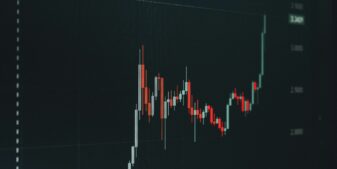Investment bank Jefferies lowered its prediction for DraftKings’ stock price from $60 to $53 amid betting tax increases, but maintained a buy rating.
The stock price has declined slightly in the last few weeks, down to $40.77 from $42.89 on June 27. However, it is up over 12% since the start of the year, from a price of $36.29 in January.
Jefferies lowered its estimate for the sports betting company’s adjusted EBITDA to $775 million, down from the company’s guidance range of $800-900 million and a consensus of $839 million.
MarketBeat notes that 27 of 28 analysts give DraftKings a buy rating, with just one analyst recommending hold. The consensus price target on the platform is $53.90, slightly above Jefferies’ estimate.
New Taxes Provide New Challenges
The adjustment came in the wake of a range of tax increases across states in the US, which could eat into DraftKings’ profits. Particularly, the $0.50 tax in Illinois on every bet placed may have a strong impact.
DraftKings responded to the tax by implementing a betting surcharge in the state, which could drive away bettors.
“Illinois has been an important part of our growth, and we’re proud to have contributed meaningfully to the state through tax revenue, job creation, and a sustained investment in responsible gaming tools and resources,” said Jason Robins, Chief Executive Officer and Co-Founder of DraftKings.
“We are disappointed that Illinois policymakers have chosen to more than triple our tax rate over the past two years, and we are very concerned about what this will do to the legal, regulated industry. Meanwhile, Illinois continues to fuel the rapidly growing illegal industry, which pays no taxes or fees and provides none of the consumer protections that regulated operators offer.”
Additionally, Louisiana, Maryland, and New Jersey all raised their taxes on gambling. Louisiana’s rate will now be 21.5%, up from 15%. Maryland is up from 15% to 20%, and New Jersey is now setting a 19.75% rate, up from 13% on sports betting and 15% on online casinos.
DraftKings Push Back Against Regulators And Lawmakers
In response to the new challenges in the betting environment, DraftKings formed its own PAC, the first sportsbook to make such a move. A company spokesperson commented, “We have established this PAC to support state and federal candidates and organizations who have shown an interest in issues affecting our business.”
Another challenge was presented last week with California’s Attorney General declaring fantasy sports illegal in the state. DraftKings started as a fantasy sports platform before expanding into sports betting and gaming after the US Supreme Court ruling that paved the way for legalized gambling across many states in the US.
In response to the opinion offered by Attorney General Rob Bonta, a DraftKings spokesperson commented, “DraftKings respectfully disagrees with the interpretation expressed with respect to peer-to-peer fantasy sports contests in the non-binding advisory opinion issued by the Attorney General of California. We believe peer-to-peer fantasy sports contests, including Salary Cap, Pick 6, and Best Ball, are legal in California, and we intend to continue offering them.”
The statement went on to say, “We intend to work with stakeholders, including the Office of the Attorney General, to try to find an amicable resolution.”

